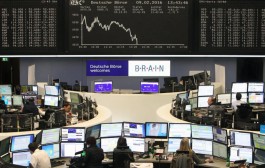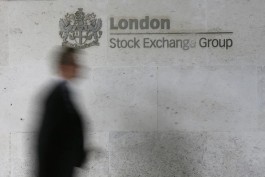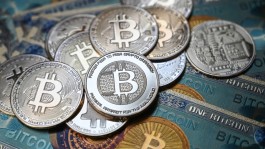Asian stocks rose after their US counterpart rose, along with bonds, last Friday, as investors increased their bets that interest rates are close to their peak during the current monetary tightening cycle.
Stocks rose in Australia, Japan, South Korea and China. The region's stock index reached its highest level in about a month, heading towards its fourth consecutive rise of more than 1%.
Meanwhile, US futures remained unchanged on Monday, after the Standard & Poor's 500 index had its best week this year, in which it rose by 5.9%.
South Korea's main index advanced 4% after yesterday's announcement that the country will ban short selling. The country's Financial Services Commission said that the ban came into effect starting Monday and will continue until the end of June 2024.
US rate cut bets
Investors increased their bets on the Federal Reserve cutting US interest rates next year as seen in swap contracts, and they all expected a cut by next June. Expectations of interest rate cuts increased partly due to the US jobs report, which came in below expectations, with a slight increase in the unemployment rate in the United States.
Capital Group: It is a very good time to buy stocks
Now there is more reason for investors to be more optimistic that the Fed has likely finished its rate hike cycle, but caution should not be abandoned. Although the economy has proven to be more resilient than expected, if stubborn inflation continues more than that, Bond yields may rise again, Vasu Menon, managing director and head of investment strategy at Overseas Chinese Banking Corporation, known as OCBC in Singapore, said on the sidelines of an interview with Bloomberg TV.
Performance of currencies and bonds
On a related note, most Asian currencies rose against the US dollar, led by the South Korean won and the Indonesian rupiah. Yields on 10-year Treasury bonds also rose in Asian trading, after falling nine basis points on Friday. Two-year bonds, the most sensitive to monetary policy changes, fell by 15 basis points at the end of last week, a sign of changing interest rate expectations.
Emerging Asian currencies rebound, benefiting from interest hikes and a weak dollar
Expectations that the Fed will cut interest rates over the next year conflict with the theory that interest rates will remain higher for a longer period that monetary policymakers have adhered to in recent months, creating a potential clash between market expectations and the Fed’s views.
“We believe the stock market correction is over, and the S&P 500 is back on track to end the year at 4,600,” Ed Yardeni, founder of Yardeni Research, said in a note on Monday. This level means recording gains of 5.5% by the end of 2023.
Bank profit results
Westpac Bank shares rose after the bank increased its dividends and announced a plan to buy back shares. DBS Group Holdings' profits also beat analysts' earnings estimates in third-quarter results released on Monday, supported by results from its commercial lending business.
The weakness of Japan's economy supports Kishida's plan to approve more support
At the level of central banks, Bank of Japan Governor Kazuo Ueda said on Monday that the central bank is not yet confident of achieving the inflation target in the near term, although the chances of reaching this target level are gradually increasing.
Data expected this week
Inflation data is due for release in Thailand, and third-quarter GDP in Indonesia are among other economic indicators expected today.
Tomorrow, Tuesday, investors expect a new increase in interest rates in Australia, after not changing them during the past four meetings. China will also release trade activity data, following statements by Chinese Premier Li Qiang on Sunday, in which he pledged to boost the country's imports.
In conclusion, in commodity markets, oil prices rose in Asian trading after Saudi Arabia and Russia reaffirmed their commitment to oil supply restrictions of more than one million barrels per day until the end of this year.






































